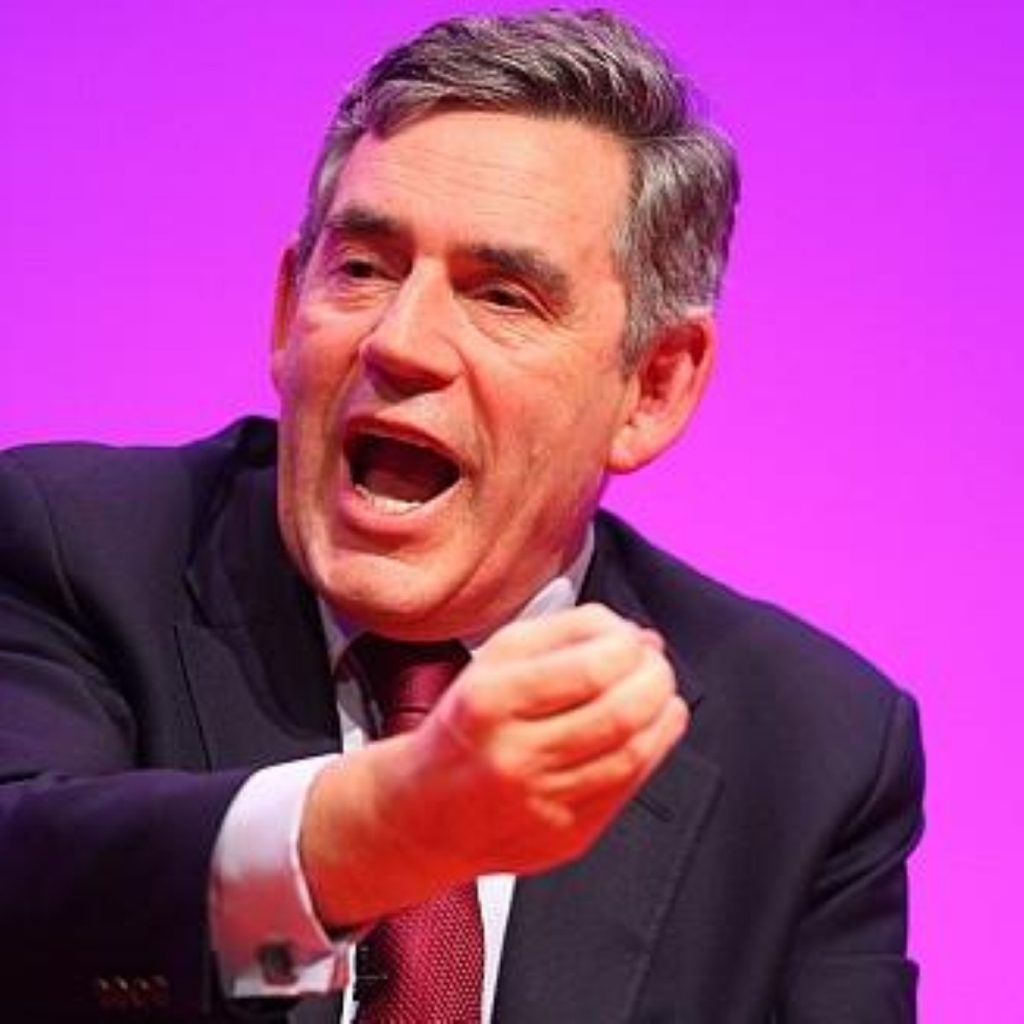Comment: Brown speech
This won’t be enough to save his skin.
Apparently some people really, genuinely thought it would. But Mr Brown has delivered many, many conference speeches before, and it’s too late now for him to turn into some sort of conference superstar.
And yet, people must surely have been expecting a little more than this. A few lines at the beginning mentioned his “hurt” at the 10p tax rate fiasco, but beyond that there was little indication Mr Brown had sat down to acknowledge the reasons the public had turned against him.
Instead, we were given a fairly typical Brown speech – albeit with some phrases stolen from American politicians (‘it’s not for me, it’s for you’ is nabbed straight from Hillary Clinton) and an embryonic new policy agenda.


It’s only fair to address that agenda first. The fairness strategy concerned education and health, with control of the financial markets as its centrepiece. Mr Brown was partially successful in using health and education funding to differentiate Labour from the Tories. He promised free prescription charges for cancer patients and free nursery school places for two-year-olds. ‘Could you imagine the Conservatives doing these things?’ he asked. No, not really, I thought. But that won’t be enough to get you out the fire.
As for the financial reform, it’s impossible to see how any of it will be achieved. Mr Brown wants “global standards and supervision because the flows of capital are global” but this is simply not within his power to achieve. It was outside the reach of a master statesman like Tony Blair, but Mr Brown has squandered much of the UK’s international standing by his indifference for international issues.
America and the UK – even Europe – might be in trouble, but it will be difficult to overcome the incentives on poor countries to attract investment by offering less regulation.
City bonuses will only be awarded on the basis of “hard work, effort and enterprise”. It’s borderline madness to imagine a situation in which the government legislates for the numerical award businesses can pay their staff. When I’ve put that sort of objection to over-eager Labour MPs they merely state that Brown and Darling are so clever they will think of something. At the risk of being proved wrong, I can’t see how they will.
Other proposals included making board members on banks face “responsibility” for the risks they take. Short of criminal proceeding, it’s hard to imagine how. Will the government fine them? Force the bank to fire them? And for what? For making the wrong choice? Will it happen if they take the same risk but it paid off?
It all sounds a little like populist posturing, without any real details to evaluate whether any of it means anything.
Outside of the policy stakes, all the old Brown problems were there to be seen. His smile remains unnerving and psychotic.
“If we make the right decisions.” he said, grinning madly.
“.to take people through the world downturn” – and suddenly the smile vanished.
His facial expressions and hand gestures continue to bear no relation to what he is saying, giving a jarring and demented impression.
At one point he savoured some applause by standing back seriously and looking out at his audience, nodding approvingly. He looked like Mussolini in those black and white film reels until he suddenly decided to stop nodding and looked uncertain for a moment. It made Vince Cable’s devastating account of him transforming from Stalin to Mr Bean come back to me.
Most worrying were the signs he had tried to take stock of the criticism, because it indicates this wasn’t him – as he later implied – ploughing on regardless with ‘who he is’. A section on how statistics don’t communicate human cost (a father missing his daughter’s wedding day because he’s died of cancer – that sort of thing) carried the echoes of Hazel Blear’s calls for him to talk to the public in their own language, like David Cameron does. Whatever. It didn’t work.
The passages that followed then reverted back to standard Brown drivel about abstractions.
“For too long we’ve developed only some of the talents of some people – but the modern route to social mobility is developing all the talents of all the people,” he said. What does that mean? Who will vote for it?
There are a couple of reasons for Labour to be cheerful. The changes to prescription charging, nurseries and elderly support are solid Labour policies which they will welcome, and the financial proposals – however far they go – appear to be more Brown making the sorts of noises they would like.
But with a speech like this, will Labour be in power long enough to implement any of it?
Ian Dunt









